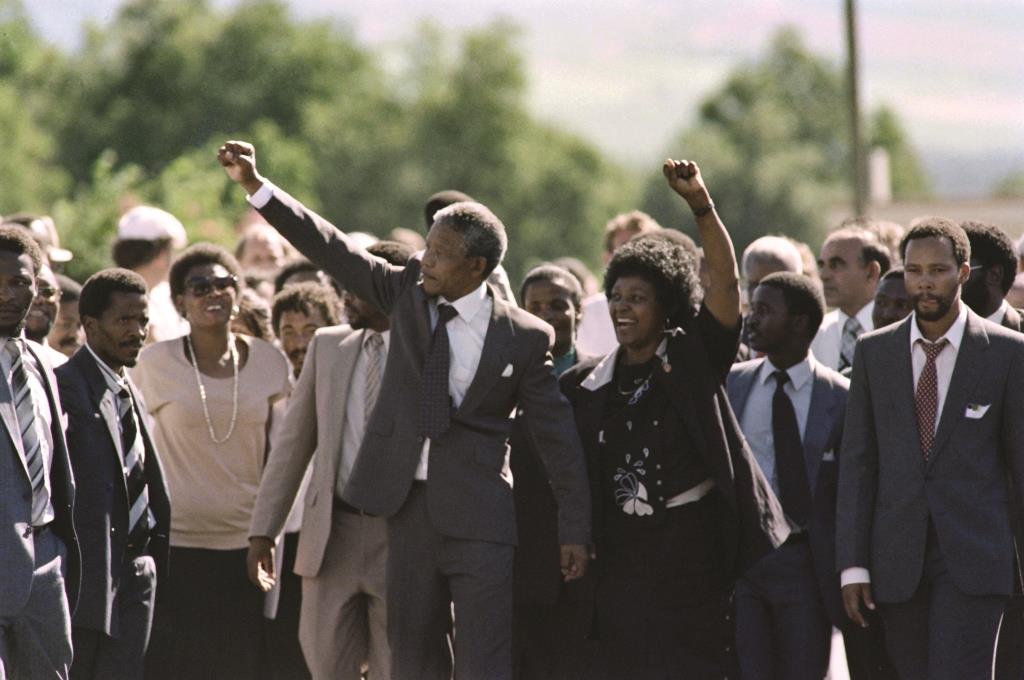Denis Goldberg, who faced death with Nelson Mandela in the 1964 Rivonia Trial, was in a TV studio in London commenting on the great man’s release from prison.
Goldberg was released before the others after 22 years.
“I was absolutely confident that I was the start of a process. I wanted to be out to play a role in the liberation of South Africa. I was tired of being a symbol locked up in prison and I thought the time had come to move things along. There was the offer of releases and unconditionally releases, I decided to accept because I didn’t want PW Botha’s offer in 1985 just to evaporate into thin air, he made the offer out of weakness not strength, that’s the important part,” says Goldberg.
“I was able to tell the story of how the day we were sentenced, the head of the prison security said we should have been hanged and will never walk out of prison on our own two feet; they’d carry us out in a coffin. And then Nelson Mandela stopped the car he was in and he and his then wife Winnie Mandela walked out holding their hands into freedom, and the rest is history. I was able to tell that story. We survived and the old security colonel had passed away.”
Goldberg has many memories of Mandela but one that sticks in the mind is their first encounter after prison.
“He said to me, ‘hello boy it’s been a long time. He always called me boy because I was so much younger then he was. It was very sweet and touching. I also remember a bit later when we met again in Sweden, my wife and my daughter had to meet him. He greeted my wife rather stiffly not knowing who she is and when I introduced her, he bent down from his great height and whispered to her, ‘the boy is looking good you must be looking after him very well.’”
Zakhe Khuzwayo, Group CFO of InnoVent, was 14 years old and at boarding school at Hilton College in Pietermaritzburg. The school was dismissed early so they could watch Mandela’s first walk as a free man.
“The man was an enigma, I think I had seen a photograph of him when I was younger, I didn’t know what to expect. I guess it was more exciting and anxiety to see who this guy is and see what he actually looks like,” says Khuzwayo.
Twenty five years later, Khuzwayo runs his own company and enjoys much of the freedom ushered in by the release of Mandela.
“His role was instrumental in what this country actually became,”
says Khuzwayo.
Political analyst Thapelo Tselapedi was four years old in 1990 and remembers the humble Toyota Cressida that Mandela rode through Cape Town in. He also remembers seeing the man in the flesh four years later.
“In 1994, when I was eight, we went to the Mafikeng stadium where he was speaking. After he spoke, my sister ran to him to him to try and get an autograph. Nelson Mandela was surrounded by his bodyguards and my brother and I tried to go in and get an autograph but we couldn’t. My sister was the only one who managed to get one. She got in, got her autograph, he shook her hand and then she got out. I was sad that I couldn’t break through, but my sister always kept that autograph in her room, it was very nice,” recalls Tselapedi.
A quarter of a century later, his feelings are bittersweet.
“Sweet because he has to do the impossible to calm down black people but at the same it seemed to not have been enough as it was limited by the interests that the white people had also wanted, he had to find a home for everyone and that meant compromise. The bittersweet part is characterized by where black people are now versus where white people are.”
Like Tselapedi, Goldberg has his opinions.
“I am still optimistic but I am also distressed. I am optimistic because we have achieved so much despite our weakness, despite the legacy of apartheid leaving us with an inadequate civil service, with half the population illiterate, half the population unemployed and we’ve come a long way since then and the conditions of people have undoubtedly improved. My sadness is the corruption and what I call the patronage society,” says Goldberg.
The man who stared down death with Mandela feels his country has a long way
to go.
